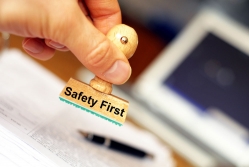 The Government has made changes to the health and safety laws, exempting most self-employed people.
The Government has made changes to the health and safety laws, exempting most self-employed people.
From 1 October 2015, health and safety law no longer apply to anyone who is self-employed and whose work activity poses no potential risk to the health and safety of other workers or members of the public.
In 2011, the Löfstedt Review recommended that those self-employed whose work activities pose no potential risk of harm to others should be exempt from health and safety law. This recommendation was accepted by Government.
HSE, the Government Health and Safety Executive, estimates that health and safety law will no longer apply to 1.7 million self-employed people including journalists, graphic designers, accountants, confectioners, financial advisers and online traders.
However, the law will still apply in certain high-risk work activities, such as agriculture and construction.
For health and safety law purposes, "self-employed" means that you do not work under a contract of employment and work only for yourself. Health and safety laws will still apply to anyone who is self-employed but employs others; those who are self-employed for tax purposes are not automatically exempt from health and safety laws.
According to HSE, it's up to individuals to judge whether there's a likelihood of someone else being harmed or injured as a consequence of their work activity - including members of the public, clients and contractors.
It said: "Most self-employed people will know if their work poses a risk to the health and safety of others. You must consider the work you are doing and judge for yourself if it creates a risk or not."
HSE has published guidance on risk management to explain more about the risks your work activity may create and how best to manage these.
